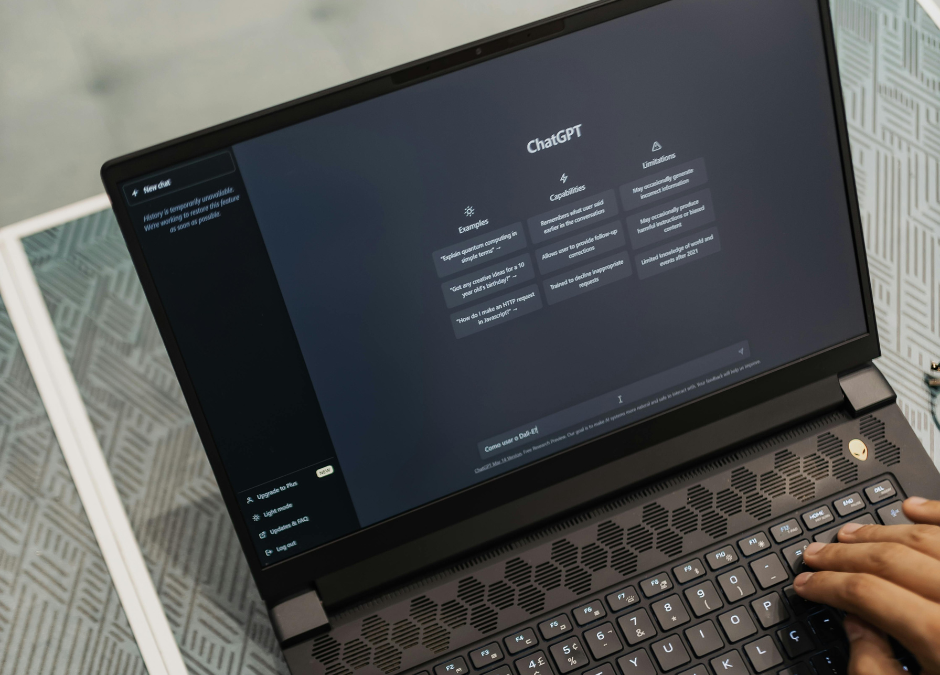It’s a daily occurrence for the dissertation students I work with to ask me about ChatGPT and how they can safely use it. It’s like AI is the new academic caffeine—everyone’s buzzing about it but no one’s quite sure how much is too much.
It’s certainly true that artificial intelligence tools like ChatGPT have transformed the way students approach their research and academic writing.
From brainstorming ideas to editing content, many new dissertation apps and tools provide a level of support that would have been impossible a few years ago.
But as impressive as AI can be, it is not a substitute for the personalized guidance and expertise of a good supervisor or a dissertation coach.
ChatGPT lacks a comprehensive understanding of your specific topic.
While ChatGPT can generate general relevant information, its understanding of complex and/or niche topics is limited to what exists in its training data. AI doesn’t comprehend the nuances and depth of your field and can’t offer well-rounded insights into emerging research.
AI does not provide critical feedback or improve your argumentation.
AI tools can identify grammar mistakes and suggest edits but they can’t evaluate the power and strength of your arguments or the coherence of your dissertation as a whole.
A dissertation coach provides constructive feedback in real time that sharpens the quality of your work: by challenging your assumptions, pointing out gaps in your logic, and firmly guiding you toward a more polished final product.
Chat won’t hold you accountable.
After a decade of working in the dissertation field, I can safely say that one of the biggest challenges of writing a dissertation is staying on track.
ChatGPT doesn’t enforce deadlines or motivate you to keep working when you’re feeling overwhelmed by life’s challenges.
A dissertation coach provides accountability and helps you set realistic goals that work within the structure of your life.
Chat doesn’t understand institutional expectations.
Every academic institution has unique requirements for dissertation projects, from structure and content to citation styles and other broader editing issues.
ChatGPT doesn’t have the ability to customize its output to meet these specific guidelines. A Ph.D. coach understands these expectations and makes sure your work adheres to them.
Chat can’t address emotional and mental hurdles.
Trust me on this one: writing a dissertation is as much an emotional journey as it is an academic one. Impostor syndrome, writer’s block, procrastination and burnout are common challenges that AI tools are poorly equipped to address.
A dissertation coach offers encouragement, helps you manage stress and provides personalized strategies for overcoming psychological barriers like perfectionism.
Chat is not an expert in scholarly writing.
Although ChatGPT can generate text that comes across as polished, it often misses the mark when it comes to academic tone and style. A dissertation coach can help you write with precision and authority, ensuring your work meets the standards of your discipline.
We can all agree: Chat is a revolutionary tool that can support your dissertation process but it’s not a replacement for the expertise, accountability and personal support of human support.
By combining the efficiency of AI with the tailored guidance of a dissertation coach, you can achieve your academic goals more effectively and safely.
Remember it this way: this is YOUR project, not Chat’s. Your dissertation isn’t just a document; it’s one part of your academic legacy. You deserve to proudly declare, “I did this!”


